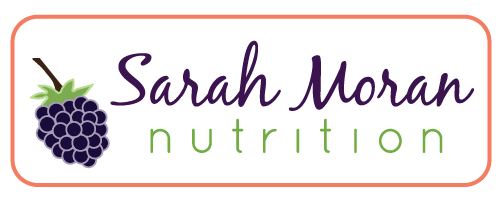 Last week, news broke on a study out of Stanford University comparing organic foods to their conventionally grown counterparts. The main message I heard in the media was something along the lines of "study finds organic food not any healthier than conventional food." Reporters would then go into a few specifics of the study and move on to the next story. I was on the fence on posting about this since I haven't read the full study, but since I've gotten quite a few questions about it in the last week, I thought I could at least discuss some of the details we do know from what has been released in the media. While this may not be the most complete analysis, I do think there are some important points that got brushed over in the media for the sake of a good headline. Here are my top takeaways.
1. What Kind of Study Was It?
Last week, news broke on a study out of Stanford University comparing organic foods to their conventionally grown counterparts. The main message I heard in the media was something along the lines of "study finds organic food not any healthier than conventional food." Reporters would then go into a few specifics of the study and move on to the next story. I was on the fence on posting about this since I haven't read the full study, but since I've gotten quite a few questions about it in the last week, I thought I could at least discuss some of the details we do know from what has been released in the media. While this may not be the most complete analysis, I do think there are some important points that got brushed over in the media for the sake of a good headline. Here are my top takeaways.
1. What Kind of Study Was It?
Let's start with the basics. We can only interpret the results if we know what kind of results we're working with. This was a meta-analysis of 237 studies comparing conventional and organic food, meaning the researchers compared the results of these studies using statistical methods. While studies such as this are helpful, it is important to know that this was not a study spanning 50 years with thousands of subjects who ate identical diets with one being conventional and the other organic (ideal, but impractical).
2. Nutritional Content is Similar
The study concluded that, on average, organic produce has the same nutrient content as conventional produce. The only exception to this was phosphorus, which was higher in organic produce. Considering this, I do want to point out that shipping produce plays a big role in this area. If you pick an apple from a tree in your back yard and eat it that day, the nutrient content will likely be much higher than an apple grown and shipped across the county, or across the world. Lesson learned, grown your own and hit up the farmer's market.
3. Conventional Produce Has Higher Pesticide Residue
This should come as a no-brainer. One of the major reasons people purchase organic produce is to reduce their exposure to pesticides and other similar chemicals. However, this point been spun in the media to be unimportant with many articles and reports noting that the levels of pesticides found on conventional produce was still far below the levels deemed safe by the FDA. Really? Do they think people buy organic because conventional produce is somehow not adhering to FDA regulations? No! They buy it because they disagree with FDA regulations that say these chemicals are safe in the first place.
4. Conventional Meat Has Higher Levels of Antibiotic Resistant Bacteria
This makes perfect sense considering animals raised conventionally are pumped with antibiotics to encourage growth (yes, really) and also to fight the infections and diseases that run rampant in the deplorable conditions in which these animals are raised. But what does this really mean? Antibiotic resistant bacteria are a serious issue because, as their name suggests, they cannot be killed with antibiotics. If these kinds of bacteria continue to proliferate, more and more often we will find ourselves with bacterial infections that simply can't be treated.
Overall, the findings of this study (assuming they are valid) largely point to the benefits of organics. Yet, somehow, the media message became "organic food not healthier." Amazing.
What are your thoughts on the organic study? What do you think about the way it was portrayed in the media? Sound off in the comments below. :)








